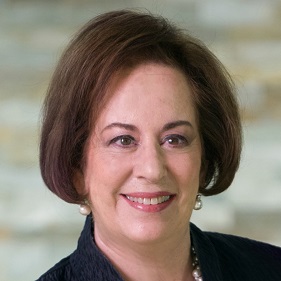The Role and Power of Women Lawyers: One Woman’s Experience from the 1960s to Today

I graduated from UCLA in 1964 with a degree in political science and no idea what I wanted to do next. My father said “Why don’t you go to law school?” I said “huh,” but the idea stuck. He said, "Why don’t you apply to Harvard and Yale, as well as UCLA here." I found the Ivy Leagues pretty intimidating, so I just applied to law schools near my home. At the last minute, I decided to take a chance and apply to both Harvard and Yale. Unlike today, Harvard only asked for my grades and LSAT scores. Yale wanted a four page essay on why I wanted to be a lawyer and another four page essay on why I wanted to go to Yale. I couldn’t have written four sentences on either topic. So I applied to Harvard, but not Yale, and to my astonishment I got in.
In 1963, activist Betty Friedan published a book called The Feminist Mystique. It helped spark a feminist movement and focused women’s attention on the need to use the law to change the role of women in our society. Although by 1964, when I was thinking about applying to law school, the feminist movement had begun to grow and be noticed, it had not really reached the suburbs of sunny Southern California.
In 1966, Friedan co-founded and was elected the first president of the National Organization for Women (NOW), which aimed to bring women "into the mainstream of American society now [in] fully equal partnership with men."
In my law school career, there were many incidents of treating the 25 women in my class (out of a class of 525) as if we were a curiosity and not serious about law school. At the same time, many of the professors treated women professionally (no matter their personal views). When I graduated, many firms would not hire or even interview women. Harvard let them do that. On other school campuses, like the University of Michigan, law firms could interview male students on the first day, make their offers and then interview women on the second day.
I came to Washington DC after graduation because it had the reputation of being more open to women lawyers. I have always been involved in women’s issues. In 1970, I went to work at the ACLU’s National Legislative Office. It was kind of a lark decision, but it propelled me firmly into the activist women’s community. In 1971, I was one of seven founders of the Women’s Legal Defense Fund which operated like the ACLU, litigating cases involving women’s rights. Today, it has become the National Partnership for Women & Families, a powerhouse advocate for women.
In the 1970’s, women were only 4% of all American lawyers. The biggest changes I have seen in the legal profession are the dramatic increase in the number of women law students, lawyers, judges, in-house counsel, and elected officials.
In 1986, I was part of an effort by the National Women’s Business Organization to select women for a White House Conference on Small Business. It was a triumph for the power of women working together. Thanks to our organizing efforts across the US, women delegates and state chairs were elected in impressive numbers. In 1988, I helped lead a successful NAWBO effort to pass H.R. 5050, which opened credit to women business owners who previously needed a male relative’s signature to borrow money for their businesses and had their income counted as their husbands’, whose name appeared first on their tax returns. It also required the federal government to collect meaningful data on women-owned businesses, including C corporations, which had not ever been included in the government’s numbers. All of this led the way to many changes in government policy.
The best thing that happened to me from being a Maryland Chairperson for the White House Conference on Small Business was my chance encounter with Paula Calimafde who recruited me to Paley Rothman. From its early days, Paula has been a partner and Paley Rothman has hired women lawyers. I have been given every opportunity to succeed and have loved my life here at Paley Rothman. It is my hope that the women lawyers at Paley Rothman both remember the history of the struggle and continue to thrive at Paley Rothman.
Looking back over the years since I applied to law school without any appreciation of what I was getting into, I have seen a seismic and exciting shift in the role and power of women lawyers. We have more to achieve, but working together, we have come far. My advice to young lawyers is to always project confidence, nurture your relationships, with clients and your colleagues at the firm, and always be faithful to the highest standards of our profession. It is also my wish that more of us get involved in the struggles of other women to reach their potential.
